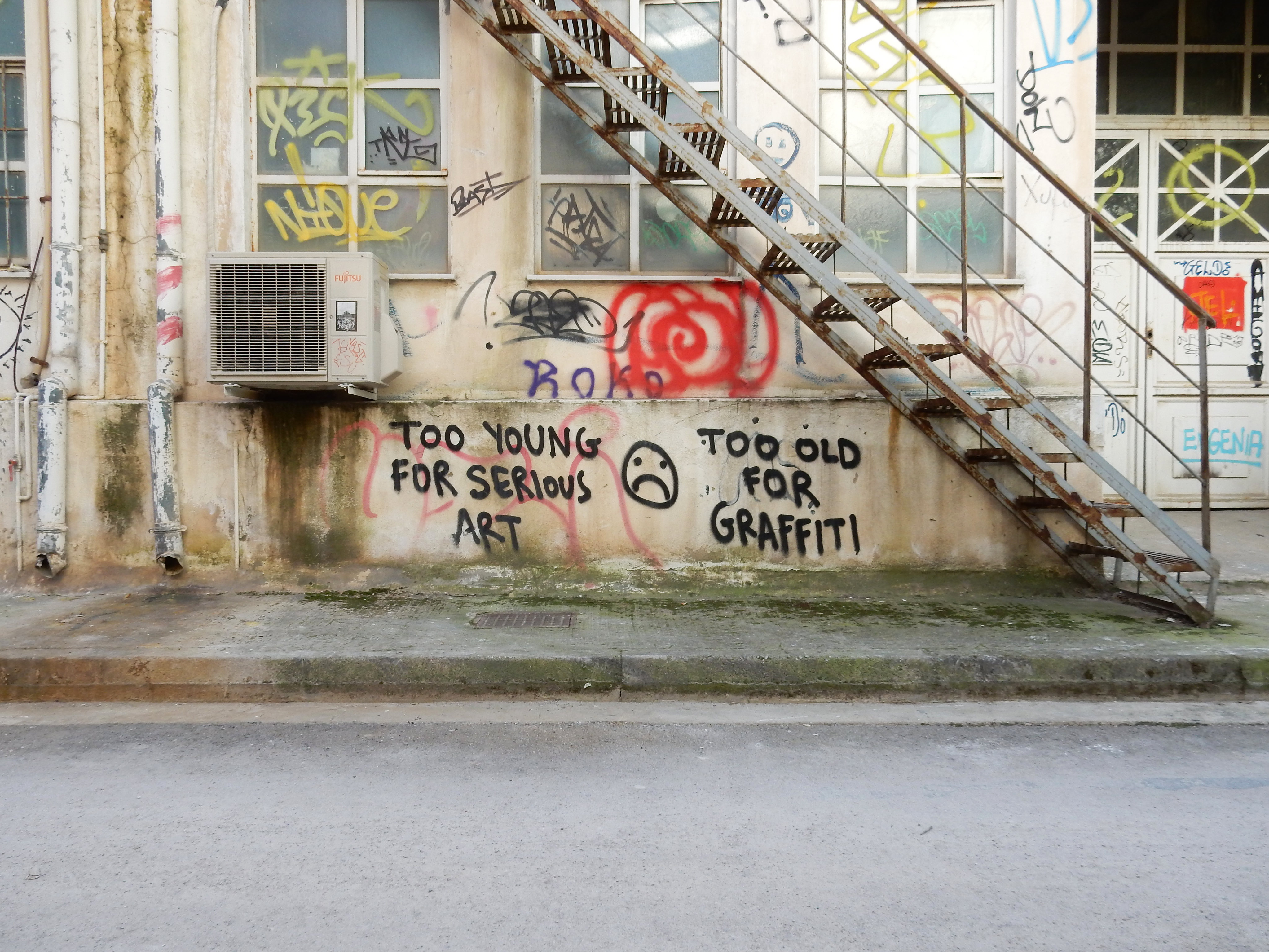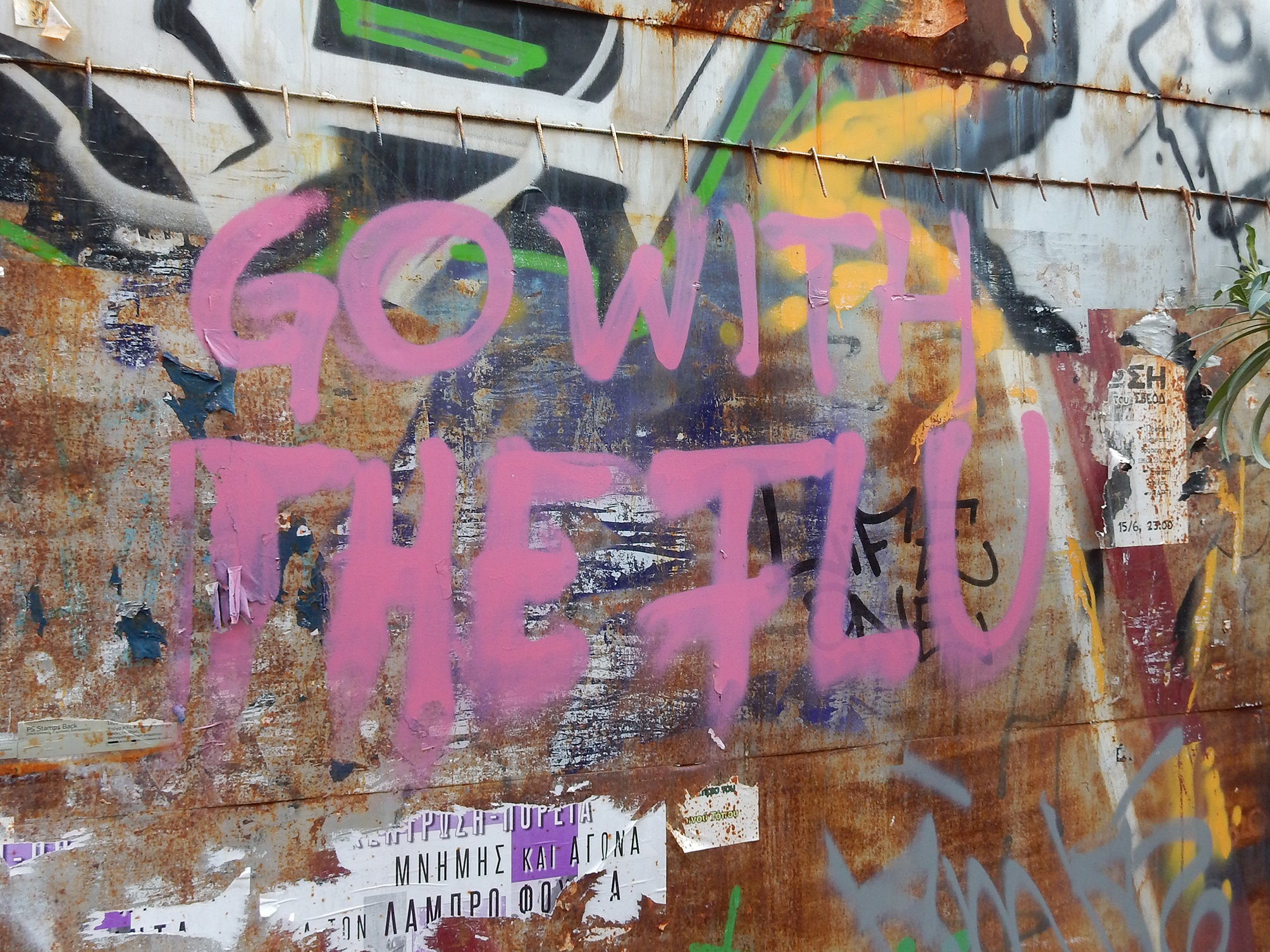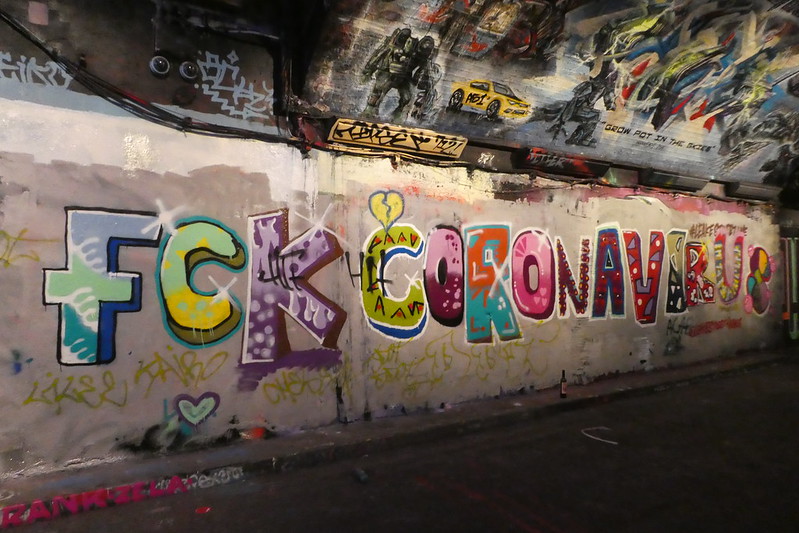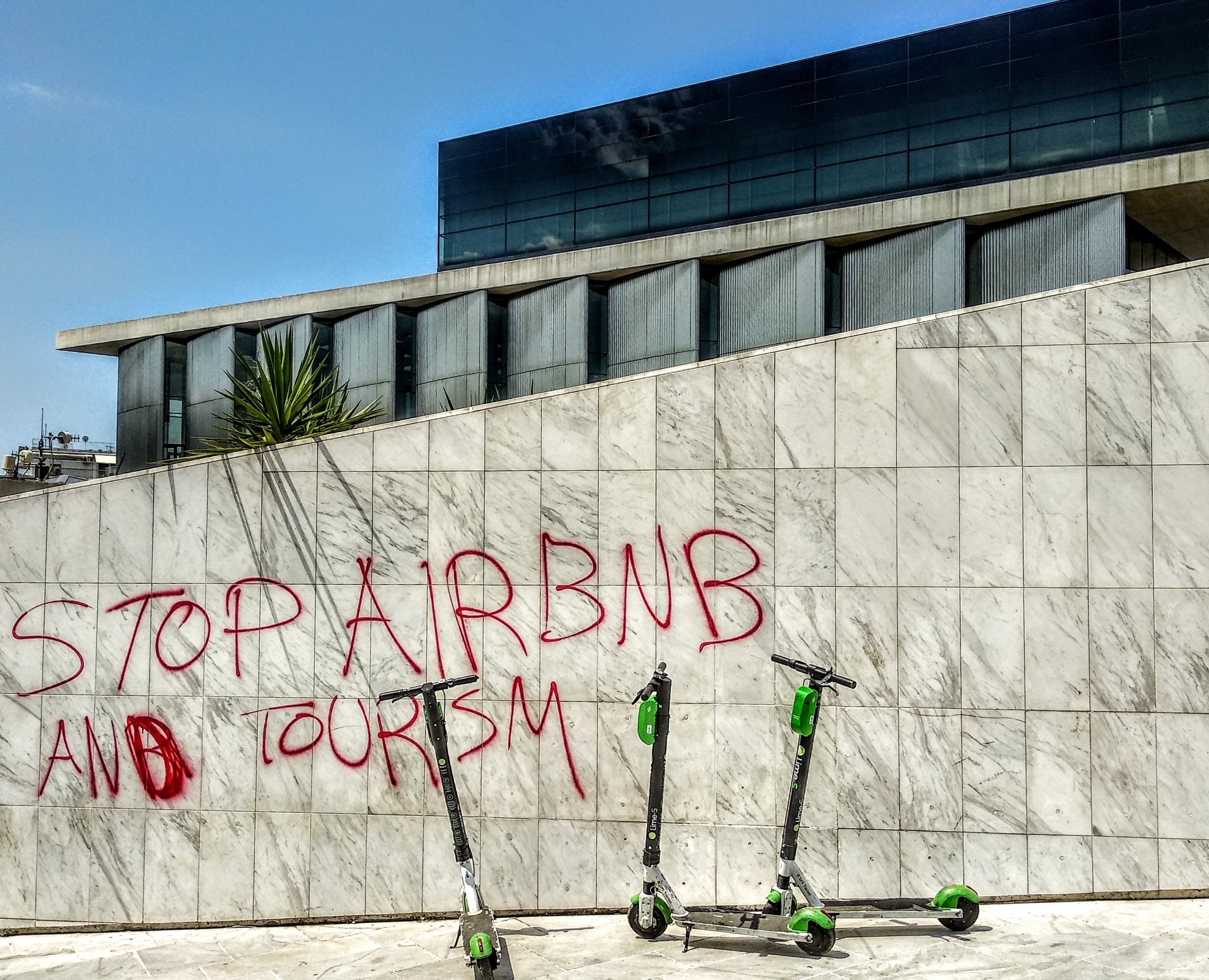There have been a number of documentaries dealing with the social and political impact of the greek crisis and particularly the violent rise of the neo-fascist party χρυσή αυγή – better known as golden dawn. Marsia Tzivara, a Greek filmmaker and video activist that has been living in Berlin for the past 2 years, takes a new perspective on the topic. In her film Burning from the Inside, she reviews the crisis from the perspective of Greek immigrants in Germany. The film deals with the situation in Greece as well as the struggle of greeks in Germany to be a part of the resistance movement. I sat down with Marsia to find out more about what motivated her to make this film as well its particular perspective.
The project is still in production and entirely self-funded. You can show your support by donating on Indiegogo.
When did you first start thinking about making this film and what was your initial motivation?
I have a long story with the fascists. I am 37 years old, that means that during my adolescence I came across those people and their ideologies. And I remember them as just a small gang around the streets. I remember this kind of contradiction that we had ideologically and the battle on the streets. And suddenly I see this old-school gang getting into parliament. So for me it was clear I needed to do it. I have been an antifascist since I was 15 years old.
How did you end up coming to Berlin?
I left Greece before. I lived in England for 6 years from when I was 18 years old. Then I came back to Greece, and worked and stayed there for 10 years. But for some people it just works better abroad. It is better to be somewhere else if you want to get something done. Greece swallows you in a way. I don’t know if I could have made this film if I was still in Greece.
You say that this is a film from the perspective of greek immigrants in Germany. What defines this perspective and what difference does it make in the situation of the crisis?
This is a very big question. As a greek now, there are many feelings that pass through. First of all, sometimes we feel racism as well. That is one more reason to sympathize with people who are affected by racism in Greece, for example. The second is that you are away and you want to have the weapons to fight. You want to have a voice but it is not easy. As an immigrant you have to find your connections, if you are new like me. You have to find people that you can socialize with and you have to find you means, the way you can protest and fight. We are many Greeks but not many of us are active. Basically it is the same people over and over again that are interested.

Still from “Burning from the Inside” showing a sign from a solidarity rally in Berlin after the murder of Pavlos Fyssas aka Killah P, an antifascist rapper, by members of Golden Dawn in September 2013. Photo via Marsia Tzivara.
Are there cooperations with local initiatives or other migrants from countries facing similar problems as Greece?
Not to my knowledge. I haven’t interacted with any people from the Balkans here, but the Germans are very interested. They show solidarity with Greece, and not just the antifascists but also the leftists in general.
Will the film be dealing exclusively with the direct struggle against Golden Dawn or will you pick up other topics?
We focus on the fascist practices in general. This is the problem: the democratic structures do not exist in Greece. I question democracy in general and the way that it can function. I think that nowadays in this world we live in democracy is not possible. It was another concept, it used to involve smaller groups. Now when you say that you have a democratic voice…well, I don’t see it, where is it? In general we think that fascism in Greece has disintegrated everything, it is everywhere. When we talk about fascism it’s not only Golden Dawn.
You also describe an attempt by Golden Dawn to establish a cell in Nürnberg in the south of Germany. I had never heard of that, can you tell me some more about it?
Of course, nobody knew it. I had this information from Greece that there was an idea to expand and I was calling people and nobody knew anything. And then all of the sudden they started. but i will leave some things for the film to explain. Well, they tried to start a cell in Nürnberg but all the Greeks responded immediately. They mobilized the greek societies all around: Berlin, Hamburg, Stuttgart and even abroad and they stopped it. It wasn’t many people doing it and it was just a small cell but their plan was dangerous.
Were they targeting the Greeks or the German nazis?
Both, the relations are known, the Bavarian nazis and Golden Dawn have relations. It is an old story. Now the Bavarian nazis even do solidarity demos with Golden Dawn all the time.
Some people I talked to in Athens spoke of a feeling of defeat in regards to the struggle against Golden Dawn, how do you see the situation?
It was not a defeat, it was an uneven war. We were fighting with different means and it was unequal. If you take into account that the antifascist movement had to be totally self-organized in a country that is going through a crisis and people have to deal with so many problems at the same time, we have to give them a little break. It took them a little time to organize but they did it. And the important thing is that they started organizing the neighborhoods from the inside so that there are now many many groups all over Athens rather than one central one. And this is how we are winning the fight. History has proven that the ideology of hatred has been defeated. It takes time but in the end the passion for freedom that the people have will win. We are a lot of people that cannot tolerate fascism.
—
This interview was conducted face to face in January 2014.
Questions by Julia Tulke.







